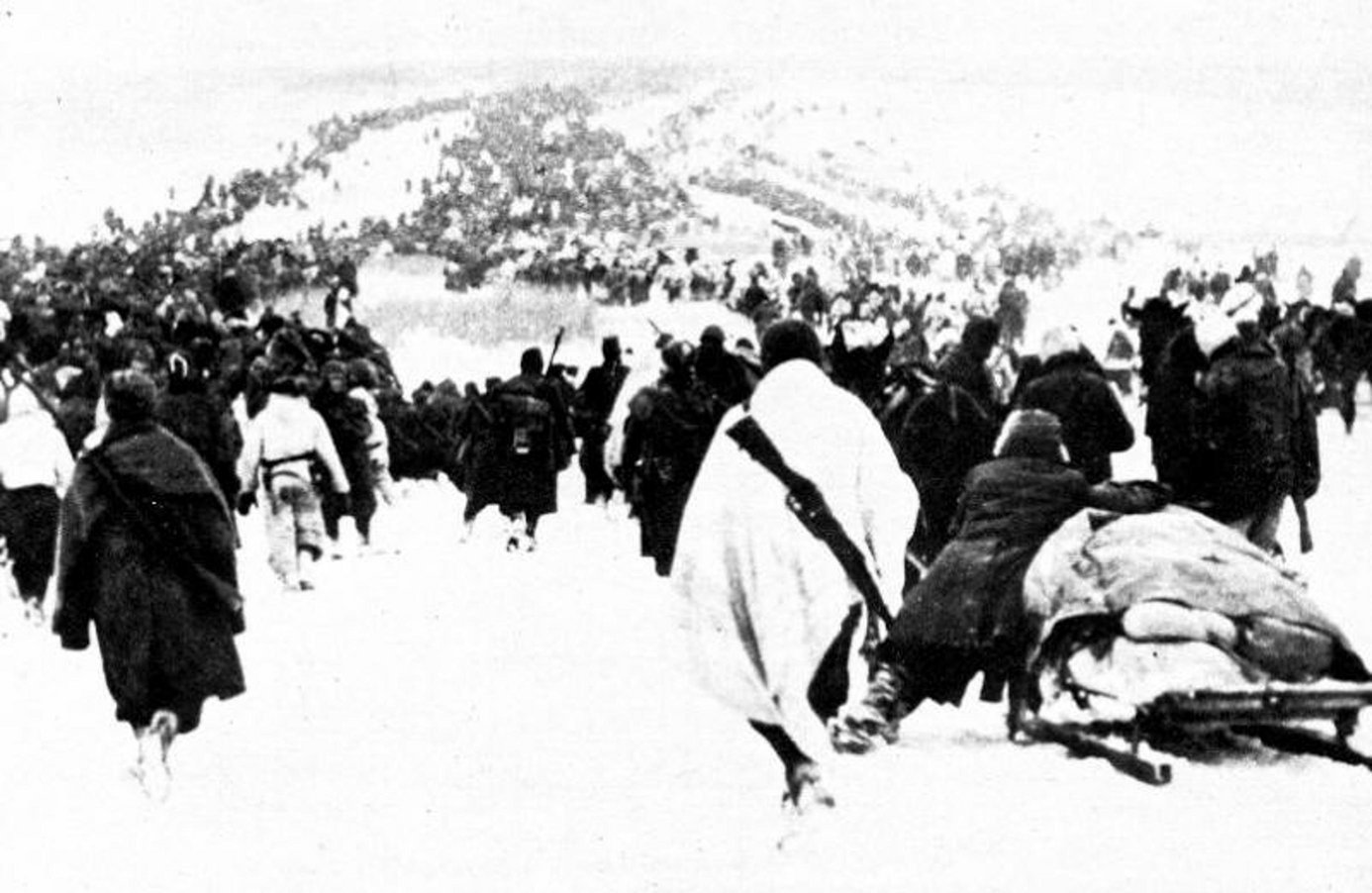My Uncle Vanished into the Icefields of Russia
The retreat of Italian soldiers from Russia in 1943 stands as one of the most harrowing episodes of World War II, emblematic of the severe hardships endured by soldiers and indicative of the broader strategic failures of the Axis powers during the invasion of the Soviet Union. This retreat, a consequence of Mussolini's ill-fated decision to join Hitler's Operation Barbarossa, underscored the immense human cost of warfare, compounded by inadequate preparation, harsh winter conditions, and logistical deficiencies.
When Italy joined Nazi Germany’s offensive against the Soviet Union in June 1941, it dispatched the Italian Expeditionary Corps in Russia (CSIR), later expanded into the larger Italian Eighth Army, known as ARMIR. By 1942, ARMIR comprised roughly 230,000 soldiers, predominantly ill-equipped infantry units, assigned to cover vast stretches of the front line along the Don River. From the outset, Italian forces were disadvantaged, poorly armed, lacking winter clothing, and operating far from reliable supply lines, relying heavily on German logistical support which often proved insufficient.
The catastrophic turning point arrived with the Soviet counter-offensive Operation Little Saturn in December 1942, a smaller counterpart to the more famous Operation Uranus, which had successfully encircled German troops at Stalingrad. Soviet forces quickly penetrated Italian-held positions, exploiting weaknesses caused by overstretched defensive lines, lack of heavy weaponry, and poor coordination with German forces. The result was a devastating collapse, with large segments of ARMIR becoming encircled or forced into disorderly retreat amid subzero temperatures and relentless Soviet attacks.
The retreat from Russia in early 1943 was marked by profound suffering and chaos. Italian soldiers endured unimaginable conditions, battling frostbite, starvation, and exhaustion, while continually harassed by Soviet partisans and Red Army units. Desperate marches unfolded across the frozen Russian steppe, with soldiers often resorting to scavenging or begging for food from local populations, who were themselves facing scarcity due to war-related destruction. Discipline eroded, and morale plunged as survival became the primary goal, overshadowing military objectives.
Personal accounts from survivors vividly describe the brutal reality faced during the retreat. Soldiers trudged through snowdrifts under constant threat of frostbite and gangrene, lacking adequate footwear and clothing to endure the extreme cold. Many succumbed to hypothermia, others simply collapsed from exhaustion and were left behind, unable to continue. Medical assistance was practically nonexistent, exacerbating suffering and dramatically increasing mortality rates. Those who fell into Soviet captivity often faced grim prospects, with many perishing in prisoner-of-war camps.
By spring 1943, when the remnants of ARMIR finally reached safety, the scale of the disaster became clear. Out of the initial force of approximately 230,000, fewer than half survived to return home. The traumatic retreat profoundly impacted Italian morale, contributing to growing disillusionment with Mussolini’s regime. Domestically, the catastrophic defeat bolstered opposition sentiment, accelerating the eventual downfall of Fascist rule in Italy later that year.
Strategically, the failure in Russia highlighted critical errors in Axis planning, underscoring the folly of sending inadequately equipped forces into hostile territories without sufficient logistical support. The retreat also exposed the deep operational and ideological divisions between German and Italian commanders, emphasizing tensions within the Axis alliance.
The retreat of Italian soldiers from Russia in 1943 remains a tragic testament to the human cost of military misadventure, revealing the vulnerabilities and devastating consequences inherent in war. It serves as a stark reminder of the importance of strategic foresight, logistical preparation, and humane treatment of soldiers, lessons that remain relevant in contemporary military discourse.
And my uncle? He sent a Christmas card from Rossoch in mid-December, 1942. He was 19-years-old. And that was the last time anyone saw or heard from him again. He simply vanished, and nothing of him came home—not his body, not his doogtags, not a single thing. The fate of the poor who must always fight and die against the poor of other nations. For reasons and things that would never make a difference at all.



